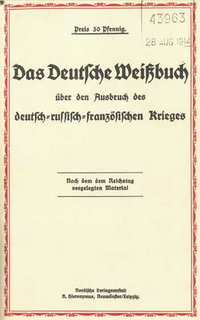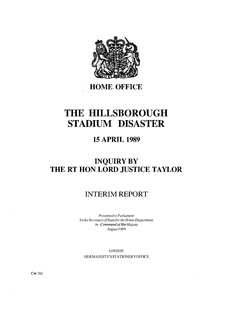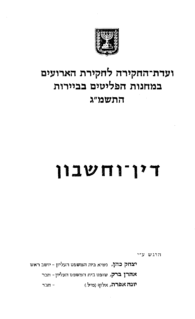 W
WThe 1969 Melbourne Transportation Plan was a road and rail transport plan for Melbourne, the state capital of Victoria, Australia, instituted by Henry Bolte's state government. Most prominently, the plan recommended the provision of an extensive freeway network, much of which has since been built.
 W
WThe Bloody Sunday Inquiry, also known as the Saville Inquiry or the Saville Report after its chairman, Lord Saville of Newdigate, was established in 1998 by British Prime Minister Tony Blair after campaigns for a second inquiry by families of those killed and injured in Derry on Bloody Sunday during the peak of ethno-political violence known as The Troubles. It was published on 15 June 2010. The inquiry was set up to establish a definitive version of the events of Sunday 30 January 1972, superseding the tribunal set up under Lord Widgery that had reported on 19 April 1972, 11 weeks after the events, and to resolve the accusations of a whitewash that had surrounded it.
 W
WIn diplomatic history, a color book is an officially sanctioned collection of diplomatic correspondence and other documents published by a government for educational or political reasons, or to promote the government position on current or past events. The earliest were the British Blue Books, dating to the 17th century. In World War I, all the major powers had their own color book, such as the German White Book, the Austrian Red Book, Russian Orange Book, and more.
 W
WA command paper is a document issued by the UK Government and presented to Parliament.
 W
WThe German White Book was a publication by the German government of 1914 documenting their claims for the causes of World War I.
 W
WThe Hobart Area Transportation Study was a comprehensive transport plan released in 1965 for the purpose of examining the transport needs of the Australian Hobart metropolitan area over the proceeding 20 years. The study predicted the majority of the proposed traffic corridors would need to be operational by the 1985 target year.
 W
WThe Kahan Commission, formally known as the Commission of Inquiry into the Events at the Refugee Camps in Beirut, was established by the Israeli government on 28 September 1982, to investigate the Sabra and Shatila massacre. The Kahan Commission was chaired by the President of the Supreme Court, Yitzhak Kahan. Its other two members were Supreme Court Judge Aharon Barak, and Major general (res.) Yona Efrat. The Commission was to make recommendations on Israeli involvement in the massacre through an investigation of:[A]ll the facts and factors connected with the atrocity carried out by a unit of the Lebanese Forces against the civilian population in the Shatilla and Sabra camps.
 W
WThe Mazengarb Report of 1954, formally titled the Report of the Special Committee on Moral Delinquency in Children and Adolescents, resulted from a ministerial inquiry. The report gained its name from the inquiry chairman, Queen's Counsel Ossie Mazengarb. The Report, its origins and its significance still remain key items in the mythology of 1950s New Zealand social history. This is not to deny the importance of the Report; however, its real significance has been obscured by inaccurate accounts in popular histories and newspaper and magazine articles. It is frequently cited as an example case of moral panic in New Zealand.
 W
WThe Metropolitan Adelaide Transport Study, or "MATS Plan" as it became known, was a comprehensive transport plan released in 1968 proposing a number of road and rail transport projects for the metropolitan area of Adelaide, South Australia.
 W
WWitold's Report, also known as Pilecki's Report, is a report about the Auschwitz concentration camp written in 1943 by Witold Pilecki, a Polish military officer and member of the Polish resistance. Pilecki volunteered in 1940 to be imprisoned in Auschwitz to organize a resistance movement and send out information about the camp. He escaped from Auschwitz in April 1943. His was the first comprehensive record of a Holocaust death camp to be obtained by the Allies.
 W
WRaczyński's Note, dated December 10, 1942, and signed by Minister of Foreign Affairs Edward Raczyński, was the official diplomatic note from the government of Poland in exile regarding the extermination of the Jews in German-occupied Poland. Sent to the foreign ministers of the Allies, it was the first official report on the Holocaust to inform the Western public about these crimes. It identified Treblinka, Bełżec and Sobibór by name as extermination camps. It was also the first official speech of one of the governments of Nazi-occupied Europe in defense of all Jews persecuted by Germany – not only citizens of their country.
 W
WReport about Case Srebrenica was a controversial official report on the July 1995 Srebrenica massacre in eastern Bosnia and Herzegovina. It was prepared by Darko Trifunović and published by the Republika Srpska Government Bureau for Relations with the International Criminal Tribunal for the Former Yugoslavia (ICTY).
 W
WThe Rettig Report, officially The National Commission for Truth and Reconciliation Report, is a 1991 report by a commission designated by then-President Patricio Aylwin detailing human rights abuses resulting in deaths or disappearances that occurred in Chile during the years of military dictatorship under Augusto Pinochet, which began on September 11, 1973 and ended on March 11, 1990. The report found that over 2,000 people had been killed for political reasons, and dozens of military personnel have been convicted of human rights abuses. In addition, many reforms have been made based on the recommendations of the report including an official reparations department.
 W
WScotland's Future is a government white paper published on 26 November 2013 by the Scottish Government under First Minister Alex Salmond. It lays out the case for Scottish independence and the means through which Scotland would become an independent country in personal union with the United Kingdom. Salmond described it as the "most comprehensive blueprint for an independent country ever published", and argued it shows his government seeks independence not "as an end in itself, but rather as a means to changing Scotland for the better".
 W
WThe Septemberprogramm was the plan for the territorial expansion of the German Empire, prepared for Chancellor Theobald von Bethmann-Hollweg, at the beginning of World War I (1914–18). The Chancellor's private secretary, Kurt Riezler, drafted the Septemberprogramm on 9 September 1914, in the early days of the German attack in the west, when Germany expected to defeat France quickly and decisively. The extensive territorial conquests proposed in the Septemberprogramm included making a vassal state of Belgium, annexing portions of France, expanding its colonies in Africa, and seizing much of the Russian Empire. The Septemberprogramm was not effected because France withstood the initial German attack, the war devolved into a trench-warfare stalemate, and ultimately ended in German defeat.
 W
WThe Stroop Report is an official report prepared by General Jürgen Stroop for the SS chief Heinrich Himmler, recounting the German suppression of the Warsaw Ghetto Uprising and the liquidation of the ghetto in the spring of 1943. Originally titled The Jewish Quarter of Warsaw Is No More!, it was published in the 1960s.
 W
WThe Black Book of Poland is a 750-page report published in 1942 by the Ministry of Information of the Polish government-in-exile, describing atrocities committed by Germany in occupied Poland in the 22 months between the invasion of Poland in September 1939, and the end of June 1941.
 W
WThe Mass Extermination of Jews in German Occupied Poland was a brochure published by the Polish government-in-exile in 1943 to disseminate the text of Raczyński's Note of 10 December 1942. It was the first official information to the Western general public about the Holocaust in German-occupied Poland.
 W
WThe Polish White Book is a semi-official name of a series of comprehensive reports published during World War II by the Ministry of Information of the Polish government-in-exile in London, England, dealing with Polish-German relations before and after the 1939 German-Soviet aggression against Poland. Each publication, released in English, French, German and Polish between 1940 and 1941, consisted of official documents and affidavits, supplemented with an overview by the Ministry. Notably, the Polish White Book was released in parallel with The Black Book of Poland series by G.P. Putnam's Sons of New York, published in London by Hutchinson & Co under a differing title in 1942.